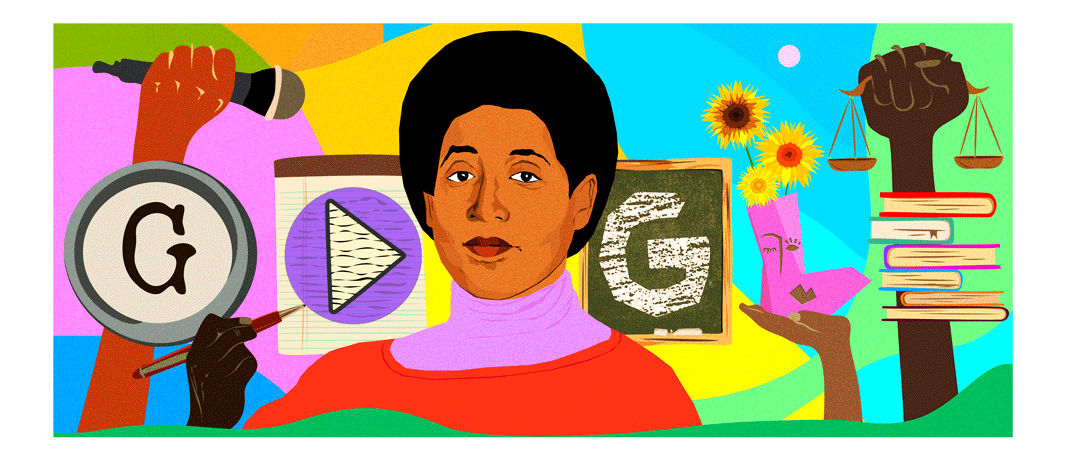Hello ladies and gents this is the Viking telling you that today we are talking about
Audre Lorde's 87th birthday

"There is no such thing as a single-issue struggle, because we do not lead single-issue lives. Our struggles are particular, but we are not alone. What we must do is commit ourselves to some future that can include each other and to work toward that future with the particular strengths of our individual identities.”- Audre Lorde
In honor of U.S. Black History Month, today’s Doodle—illustrated by Los Angeles-based guest artist Monica Ahanonu—celebrates internationally-acclaimed American poet, feminist, professor, and civil rights champion Audre Lorde, a key figure of the Black and LGBTQ+ cultural movements of 20th century. For Lorde, poetry was more than just a form of emotional expression, it was a way of life–providing the vehicle for her lifetime advocacy against discrimination and racial injustice.
Audre Geraldin Lorde was born the daughter of Caribbean immigrants on this day in 1934 in Harlem, New York City. Introverted as a child, she learned how to read and write from her neighborhood librarian Augusta Baker, who influenced her profoundly. Poetry soon became second nature for Lorde. When asked how she was, her response was often a poem she had memorized, and by eighth grade, she began to write her own verse.
A precocious student, she became the first Black student at Hunter High School, a public school for gifted girls. Her 1951 love poem “Spring” was rejected as unsuitable by the school’s literary journal, but was printed by Seventeen magazine when she was just 15—making it her first published poem. Lorde went on to earn her Master's of Library Science from Columbia University in 1961, and continued to write poetry as a librarian and English teacher in New York public schools throughout the ‘60s.
Describing herself as a “Black, lesbian, mother, warrior, poet” Lorde emerged as an essential voice in the confrontation of homophobia and racism when she published her first collection of poems, ”The First Cities” (1968). Throughout her career, Lorde published poetry that explored identity and sexuality, while demanding social and racial justice—not only in the United States, but also abroad.
Between 1984 and 1992, Lorde spent extensive time in West Germany teaching poetry at the Free University in Berlin and organizing the local feminist movement. While in Germany, Lorde led numerous lectures and workshops on feminism, homophobia, classism, and racism. She also connected and mentored Black German women, encouraging them to define and own their identities; Lorde’s guidance was influential in sparking the Afro-German movement of the ‘80s.
Poetry wasn’t the only literary medium that Lorde was fluent in; she also earned great acclaim for her prose. Her book “Sister Outsider” (1984) is a notable collection of her essays and speeches—including “Learning from the 60s” (excerpts of which are featured in today’s Doodle artwork). In this speech and throughout her career, Lorde explored how the complexities of contemporary social justice activism lie at the intersections of our individual differences, which include gender, class, race, and sexuality.
She noted that personal identity isn’t shaped by a single factor, rather that it’s the result of the myriad aspects of experience exclusive to each individual. Lorde felt that understanding this concept was the best way to make progress against oppression; understanding that the prejudices others face vary greatly from person to person, as they are unique to their own life’s journey. Lorde is often regarded as one of the forefront voices of intersectionality and its role within the global feminist movement.
For her literary achievements, Audre Lorde was awarded the American Book Award in 1989. She was later honored as the poet laureate of New York State through the Walt Whitman Citation of Merit in 1991.
Happy birthday, Audre Lorde and as always have a chilled day from the Viking
Comments
Post a Comment